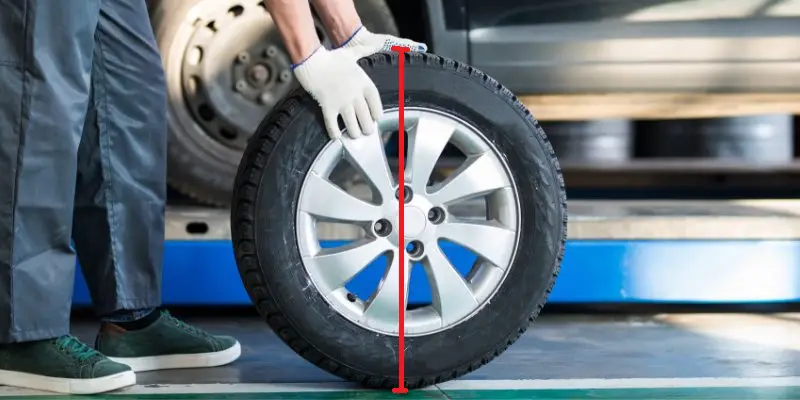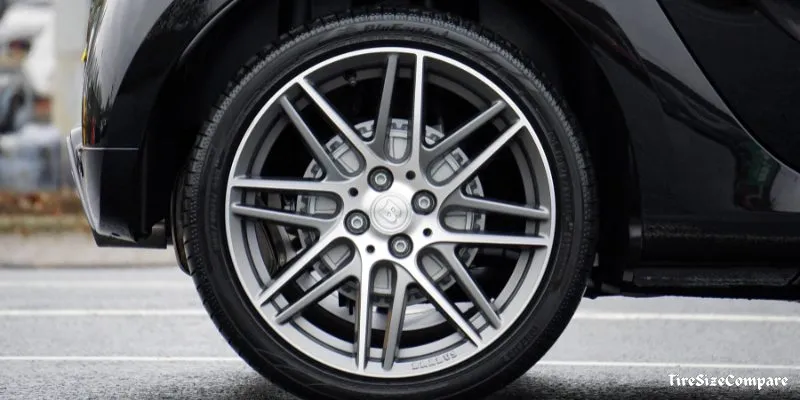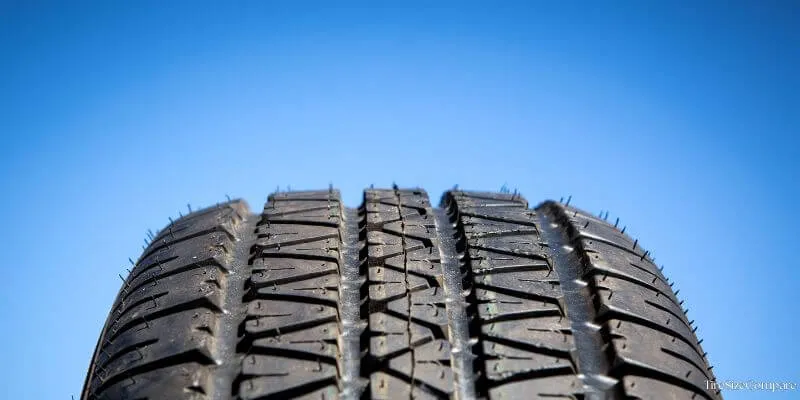Overall Diameter of Tire

The overall diameter of a tire is the total height of the tire from one side to the other, including the wheel. It’s an important measurement because it affects your vehicle’s performance, speedometer accuracy, and overall driving experience. Understanding tire diameter can help you choose the right tires for your vehicle.
Understanding Tire Diameter
The overall diameter of a tire might seem like a technical term, but it’s actually quite simple. Think of it as the tire’s height from the ground to the top when it’s mounted on your vehicle.
This measurement includes both the tire and the wheel it’s mounted on. It’s crucial because it affects many aspects of your driving experience.
Why Tire Diameter Matters
Tire diameter impacts several key factors:
- Speedometer Accuracy: Your car’s speedometer is calibrated based on the tire diameter. If you change the tire size, your speedometer might show an inaccurate speed.
- Performance and Handling: The tire diameter influences how your car handles on the road. Larger diameters can offer better stability but might reduce maneuverability.
- Fuel Efficiency: Larger tires can sometimes lower fuel efficiency because they are heavier and require more energy to move.
- Fitment: Not all tires fit all cars. Knowing your tire diameter helps ensure you get the right size that fits your vehicle.

How to Measure a Tire’s Overall Diameter
To measure a tire’s overall diameter, you’ll need a tape measure. Follow these steps:
- Make sure the tire is properly inflated to the recommended pressure.
- Place the end of the tape measure on the ground at the center of the tire’s tread.
- Stretch the tape measure across the tire, passing over the top of the tire, and down to the ground on the opposite side.
- Read the measurement on the tape measure, which will give you the overall diameter of the tire in inches or centimeters.
Why Does Overall Diameter Matter?
The overall diameter of your tires can affect various aspects of your vehicle’s performance:
- Speedometer accuracy: Your vehicle’s speedometer is calibrated based on the expected overall diameter of the tires. If you change to tires with a significantly different overall diameter, your speedometer may not provide accurate readings.
- Handling: Tires with a larger overall diameter can change your vehicle’s handling characteristics, such as its turning radius and stability.
- Ground clearance: Larger overall diameters can increase your vehicle’s ground clearance, which may be beneficial for off-road driving or navigating rough terrain.
Choosing the Right Tire Diameter
When selecting new tires, it’s essential to stick close to your vehicle’s recommended tire diameter. Here are some tips:
- Consult Your Vehicle Manual: Your car’s manual will have the manufacturer’s recommended tire sizes.
- Talk to a Professional: Tire shops and mechanics can offer advice based on your vehicle and driving needs.
- Consider Your Driving Habits: If you drive mostly in the city, you might prefer smaller, more maneuverable tires. For off-roading, larger tires could be beneficial.

What is the Overall Diameter of a Tire?
The overall diameter of a tire is the total distance across the tire from one side to the other, measured in inches or millimeters.
How Does Overall Diameter Affect My Vehicle’s Performance?
The overall diameter of your tire can affect your vehicle’s acceleration, braking, handling, ride quality, and fuel efficiency.
How Do I Measure the Overall Diameter of My Tire?
To measure the overall diameter of your tire, park your vehicle on a flat surface, measure the distance from the ground to the top of your tire at the center, and multiply the distance by two.
What Factors Can Affect the Overall Diameter of My Tire?
Factors that can affect the overall diameter of your tire include tire size, tire pressure, and tire wear.
Can I Use a Tire With a Different Diameter Than Recommended?
It’s possible, but it can affect your vehicle’s performance, handling, and speedometer accuracy. Always consult a professional before making changes.
Conclusion
The overall diameter of your tire is an important measurement that affects your vehicle’s performance, speedometer accuracy, and clearance.
By understanding what overall diameter is, how to measure it, and what factors can affect it, you can make informed decisions when choosing new tires for your vehicle.
Remember to stick with the original diameter unless you have a specific reason to change it, and always consult with a tire professional to make sure you’re choosing the right tire for your needs.



